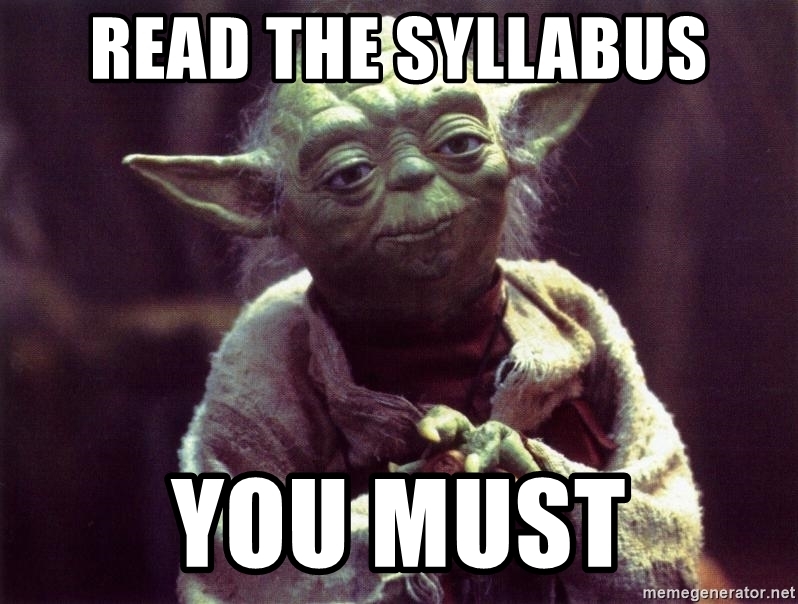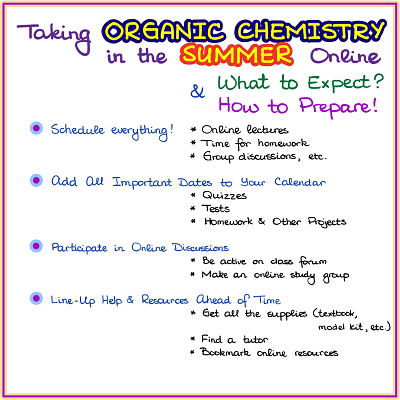What Is the Difference Between a Good Question and a Bad Question?
Imagine yourself doing your homework or reading the textbook and something doesn’t make sense. What would you probably do in such a case? Correct—ask your teacher. Next day you go to school, go to your teacher’s office hours or visit with them after the class, you ask your question and… you get an answer… not necessarily a helpful answer or the answer that you would’ve liked to hear.
So why didn’t you get the answer to your question? Is it because it was a bad question? Is it because you asked a good question, but your instructor is in the bad mood? Or maybe the reason for you didn’t getting the answer you wanted is in the way the question was phrased? I believe, it’s actually a combination of all those factors.
Often, I hear from students that their teacher doesn’t answer their questions, or he makes them feel stupid, or he makes fun of them, or anything in between those lines. And yes, I agree that getting the famous Gene Wilder’s “Tell me about it” face for an answer is not a very pleasant or encouraging experience.

Let me be the devil’s advocate here and say that sometimes it’s not really your instructor’s intention to act like a jerk. Of course, some of them are jerks and there’s nothing you can do about it, but that’s a completely different story. More often than not, however, your teacher genuinely can’t answer a question because it’s a bad question! So, let me help you to avoid the typical pitfalls of a bad question and get the answers you want.
In this post, I will explain how to avoid bad questions, how to construct good questions, and how to trick jerk professors into answering your questions and not giving you a condescending smartass reply.
A quick disclaimer: this post is written from the perspective of an instructor. So, it might seem like I’m ranting here and there—I’m not. In this post I’ll tell you what your instructor is most likely thinking when he or she hears a bad question. How do I know that? I’ve been a college instructor for many years before I became a professional organic chemistry tutor. After teaching in several schools across the US and Europe, I can tell you the typical “ticks” and pet peeves that many instructors have.
What Is a Bad Question?
There are a few types of bad questions out there. We’re all guilty of asking them sometimes so don’t be too hard on yourself by asking a bad question here and there. What’s more important though, is to make a conscious effort to avoid those as much as possible, especially when you’re asking your teachers for help or clarifications. Now, what exactly are those bad questions? Let’s break them one by one.
Definition Questions
A definition question is something that you can easily look up. For instance, “what is the structure of an acetic acid?” This is a bad question because you can simply google it. You don’t need to ask your professor that. If you ask your teacher such a question, it simply tells them “hey, I’m too lazy to pull out my smartphone and google it, so I’m going to use you!” I can guarantee that when you ask a “googleable” question, your instructor will think you’re lazy. Here are a few more examples of questions like that:
- What are the characteristics of an aromatic compound? –google it or look up in your textbook!
- What are the reactions of alkenes? –open your textbook at the table of contents!
- What are the structures of compounds X & Y? –google it!
So, if you don’t want your instructor treating you like you’re lazy and wasting everybody’s time, don’t ask questions before googling or checking your textbook for an obvious answer.
Are there good “googleable” questions? Absolutely! An example of a good “googleable” question would be something like: “I’m trying to find the structure of this compound, but I couldn’t find it on the Internet. I’m not sure if I’m not spelling the name correctly or I just don’t know how exactly to look it up. Could you help me out?” Names like phthalimide and thalidomide sound very similar but are, in fact, very different molecules. If you’ve never seen the name spelled out, you can easily misspell it and google might give you a wrong suggestion based on your spelling. This way, you’re clearly showing to your instructor that you’re not lazy and you’re quite capable of looking up the information, but you do have an unrelated obstacle preventing you from getting that information on your own.
Remember, if you come to me and say: “hey, what’s the structure of phthalimide?” I’m not going to think: “Oh, Sue is having troubles finding the structure of this compound because she probably doesn’t know how the molecule’s name is spelled,” or “Sam has probably never heard about search engines on the Internet, so I’m going to introduce him to the world of googling!” What I actually think is more like:

Do tell your teacher why you couldn’t look it up (or you did and didn’t find anything related). Otherwise, you’re making your teacher to do their best impersonation of Jean Luc Picard (but silently and in their imagination).
Very Broad or Vague Questions
This is a type of a question when you’re asking your teacher to summarize into two sentences something that takes 50 pages in the textbook. This is just impossible to do. The best your instructor can do in this case is to give you some vague or go-and-read answer.
Let me give you an example. If you come to your teacher and tell him: “I don’t know how to do mechanisms. Can you help me?” it would be an equivalent of saying: “I don’t know how to cook. Can you teach me?” and expect to become a good cook after a 15-minute demonstration. It is unreasonable to expect a concise answer to a broad question. When you say that you don’t get mechanisms, you’re making a fair statement. And you might indeed be thinking: “That’s right! I don’t get mechanisms! Help!”
Let’s step back for a moment and think about organic chemistry as a course first. A huge part of organic chemistry course is devoted to the development of a mechanistic thinking. So, things like mechanisms, acid-base chemistry, stereochemistry, or spectroscopy are not just a concept you may have troubles with. They are big topics that include lots and lots of bits and pieces. It is fair to be confused by a topic and struggling with its applications. “Explain to me the whole topic,” however, is not a fair question. Try something a little more focused instead.
When you’re asking an organic chemistry question, always remember to ask a specific question. For instance, instead of asking for a help with “mechanisms” you can always explain to your teacher that you’re working on a mechanism of, say, an alkene hydroboration and you’re confused on the electron flow or stereochemistry of a specific step. This gives an instructor a context for your question, so he would know what exactly you’re struggling with.
Do yourself a huge favor by first understanding if you’re struggling with a concept or a big topic. How you can easily do that? Is your question is something that takes a book chapter to explain or one or two passages? If something takes more than a couple of pages in your textbook, that’s a topic—break it down!
By the way, asking your teacher to help you break down the topic so you can see the “moving parts” is a totally legit question. Sometimes the topics are presented in such a way that it is difficult to figure out all bits and pieces on your own.
Is That Going to Be on the Test?
Yes.
Or, as an alternative: “What’s going to be on the test?”
Everything.

I cannot even begin to explain how irritating those questions are! As an instructor, I at least want to believe that you’re taking my course because you’re interested in the content. If you’re constantly asking me what’s going to be on the test, you’re just telling me that you’re only interested in a grade. Remember, your teacher is a human being. Most of the professors out there love what they do! If you hurt their feelings by showing them that you don’t care about the subject, they won’t care to help you to succeed.
You can argue that you’re only asking what’s going to be on the test because you want to do your absolute best and be prepared. Let me repeat: every professor hates the “is it going to be on the test” question! Usually the chapters and/or topics for each test are outlined in the syllabus. If they are not, your instructor will mention which topics are on the next test a few days before the test. Often, everything that has been covered up to date is a fair game. In other words, “what’s going to be on the test” is a fair yet potentially a dangerous question. Use it if you absolutely need to clarify the things but use it very sparingly and carefully!
Just Tell Me the Answer
This is the worst offender of all bad questions. Never ask your instructor for an answer. Your instructor is helping you to build the skills needed to get the answer. Just giving you the answer would be a betrayal of this goal.
What should you ask instead? Tell your instructor that you want to understand how to get to the answer. Ask them to show you a step-by-step approach to the problem’s solution. We love students who ask us the “how” questions! Just make sure it’s not the exact same question they did in class last Tuesday. When I get a student, who tells me that they know the answer, but they want to make sure they know exactly how to get it, it’s like:

So, I hope that this helps you to get a sense of what a bad question is and how to avoid those questions.
What Is a Good Question?
A good question is always targeted. Use the following formula to construct a good question:
- I was working on my homework/reading the textbook/listening to the lecture,
- …and I came across this reaction/concept/problem.
- I’ve tried googling/working it out/read some more (show them your work!)
- …and I am confused about this specific thing.
This is, of course, not a set-in-stone formula that you have to use. Rather, it gives you a general idea of what a good question looks like. You should always give your instructor some context for the question:
- Is that a homework question?
- Is that a passage in the textbook?
- Is that something they mentioned in the lecture? etc.
Always tell your instructor what you’ve done to answer your question on your own. More importantly, show them your work! Nothing tells me more that you’re working hard than a stack of paper of mechanisms and reactions. It works on teachers like magic! When you show them all the work you’ve done, they will subconsciously try to match your effort in helping you with your question. Your teacher can also easily spot a problem in your mechanism or a synthesis if you show them your work. Otherwise, they have to “poke around” till they figure out what exactly is giving you such a hard time. Bringing your work to your instructor will save you both a lot of time and frustration!
By asking a targeted and specific questions with a context you will also “force” even the worst jerk teacher to give you a specific answer. For instance, if you come to your instructor and ask him “What makes a good nucleophile?” the first thing that is going to go through his head will be something like:
- Read the textbook!
- Google it!
- We’ve talked about that on Monday in the lecture, were you paying attention?
It’s hard to expect a good answer from a person who just thought some (or all) of those things. They might give you a quick generic answer to shoo you off and be on their way. Don’t expect a thoughtful or enthusiastic answer though.
Now, instead ask something like: “I’ve been researching more into nucleophilicity and here are the things I’ve learned in the lecture, here are the things I’ve read in the textbook, and here are the things I’ve picked up on the Internet. They all seem very similar and I was getting a little confused about what’s more important and what’s less important. So, if you were to summarize the factors that make a good nucleophile in the order of their importance, what would it be?”
BAM! They are cornered! You’ve given them a context, you’ve knocked out every possible “go to” answer they might give you, you’ve showed them your work, and you’ve specifically told them how you want the answer to be.
Yes, it does take more effort to ask a good question. In the process of writing a good question, however, you’ll easily see the gaps in your understanding and be better prepared the next time you visit with your professor. By asking good questions and avoiding the bad ones, you’ll learn more, build a better relationship with your teacher, and get the answers you need to ace the next test!


